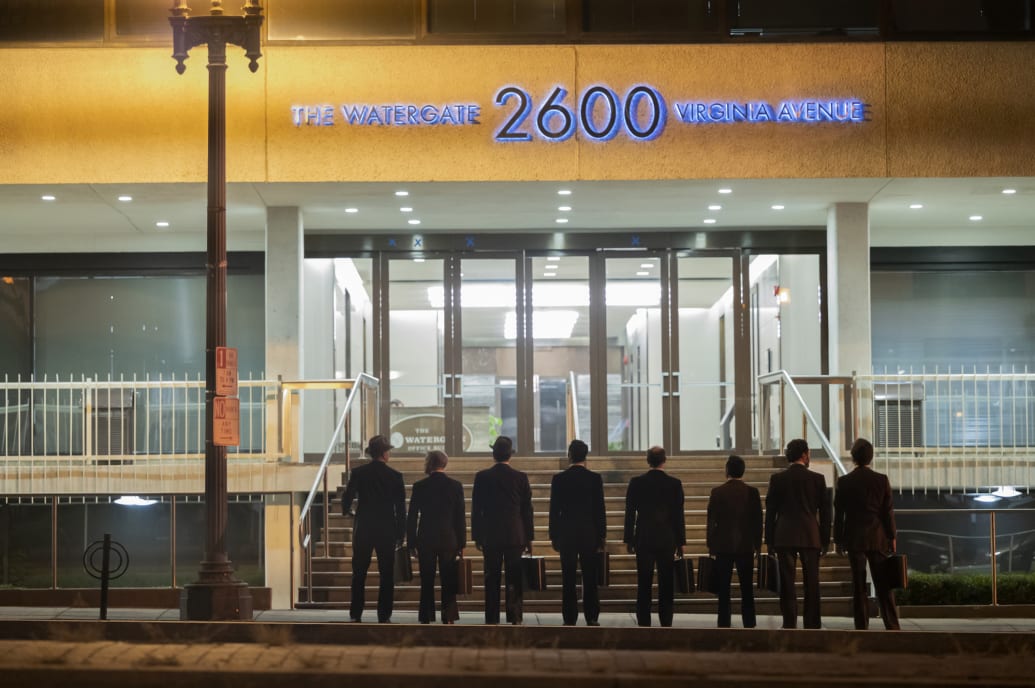If you’re not a history buff like me, you may remember the apparent confusion you felt when you realized that the Watergate thefts did not occur in some even higher-security high-end government buildings. Knowing that scandal played a key role in the eventual downfall of Richard Nixon’s presidency, I spent most of my adolescence assuming that Watergate was a Kremlin-like building in Washington DC. A hybrid office-hotel-apartment complex wasn’t on my dismissal bingo card. Hell, I’ve known teenagers who could do this more discreetly, armed only with a Swiss Army Knife and two packs of sugarless gum.
In all the television shows and movies made about the Watergate scandal, surprisingly little attention has been paid to the thieves themselves. (Unless you count it as an integral part in 1999, dickreally made All the President’s Men earthquake in their boots). Their stories have been largely ignored in favor of retellings of the political fallout. Watergate is a fascinating scandal, but it can only be told in so many ways.
Enter HBOs White House Plumbers (released May 1) feels like a novel that finally tackles a dusty story despite the limited series that has been sitting in production hell since late 2019. to the team of thieves. In particular, G. Gordon Liddy (Justin Theroux) and Howard Hunt (Woody Harrelson) are the two idiot leaders whose blind patriotism is key to their downfall.
Just last year, while another prestige series about Watergate was airing, oil lamp, White House Plumbers it doesn’t make sense. The show’s ensemble cast is electric, and there’s a surprising amount of visual style. Theroux and Harrelson are the stars, but it’s the series’ sensitive portrayal of their characters’ real-life antics that will shock and delight both history class leavers and Watergate enthusiasts alike.
Before they both became low-level Nixon stooges, former intelligence agents Liddy and Hunt – Liddy for the FBI and Hunt for the CIA – were immortally committed to conservative American politics. In 1972, both men were called by Nixon’s Committee to Re-Elect President and were asked to brainstorm intelligence-gathering operations. Eventually, they arrived at a package of insane, highly illegal ideas that Liddy called Operation Gemstone.
Justin Theroux and Woody Harrelson.
HBO
Harrelson and Theroux play each other with dynamo chemistry in the first episodes of the series. While Liddy spends her days trying to piss off Hunt, Hunt tries to keep things realistic and measured so she doesn’t have to quit her job and go back to her day job as a mystery writer. This is more difficult than expected, as Liddy’s obsession with Nazi memorabilia, inflated ego (even more inflated mustache) and exaggerated ideas don’t exactly stand out.
Despite all of Liddy’s real-life horror, she is portrayed by Theroux with the perfect balance of cleverness and charm. In a word, Theroux, with a great cast, low, playful transatlantic accent, and stupidly bloated self-confidence, threatens to steal any scene from Harrelson. However, Harrelson provides the necessary grounding point. White House Plumbers from feeling like a satire of history. But the show is at its best when it leans towards the comedy of its characters’ existences and all the garbage fires that have occurred around them under the Nixon administration.
A particular example is Kathleen Turner’s guest appearance as Dita Beard in the second episode. Beard was a lobbyist for International Telephone and Telegraph Corp., whose note committing $400,000 to the Republican National Congress – if the Justice Department finalizes a lawsuit against ITT – caused his own mini scandal. Turner is a genius actor who, while choking on a cigarette in an ITT office, shouts at the typewriters outside, asking if “devotion” is “one T or two.” Liddy visits Dita in the dark of the night wearing a black bob wig and prosthetic nose to save her asses from being put under the microscope, where Dita speaks nonsense about what White House officials think is a “lesbo-homo conspiracy” against her. Minister. While it’s trying to make a political parody that still has real narrative value, it’s hilariously silly and a great model to point out.

not everything inside White House Plumbers He is quite skilled. The series may only have five episodes, but there are occasional narrative moments of decline. Viewers will always focus more on flashy moments like clumsy break-in attempts (among which four, each well documented by the show). There’s a little too much focus on Hunt and Liddy’s family lives, which for multiple episodes often slide into the same area. But as Judy Greer and Lena Headey round out the ensemble as Liddy and Hunt’s wives Frances and Dorothy, it’s hard to be upset when both actresses are given some spectacular scenes of their own.
Ultimately, these local interests are necessary, especially in the last two episodes of Liddy and Hunt, which open the emotional dial to get a glimpse of the seriousness of the puddle in which they let themselves sink. the anger of their families and Nixon’s soulless henchmen. After spending the first half of the season discovering similarities between Hunt and Liddy, White House Plumbers spends the back half emphasizing their differences. He doesn’t seek sympathy from us, but instead asks honest questions about Watergate that all (good) media should do.
White House Plumbers may end up asking the same questions that have been posed for decades, but it does so in clever and quick ways. The series juggles between different genres in an attempt to come up with something new from old material. And he does this by examining how unswerving devotion to politics and country has always been a uniquely gruesome form of religion, and that even after 51 years it doesn’t come close to dying.
Did you like this review? Sign up to receive weekly See. Skip newsletter Every Tuesday and find out which new shows and movies are worth watching and which are not.